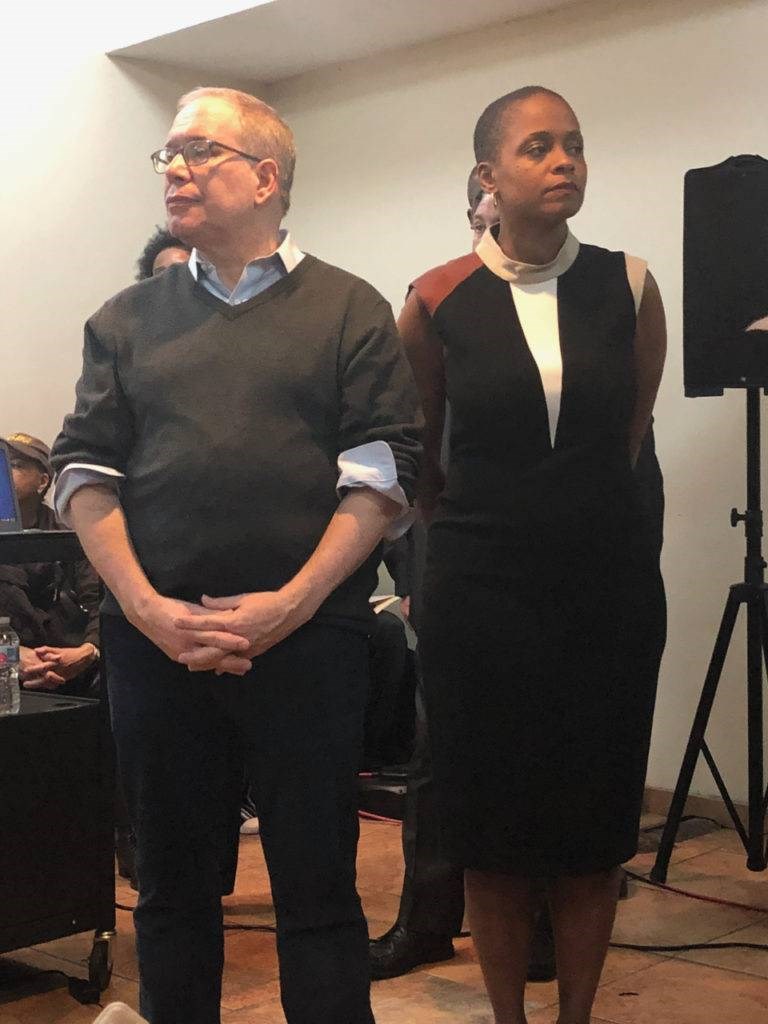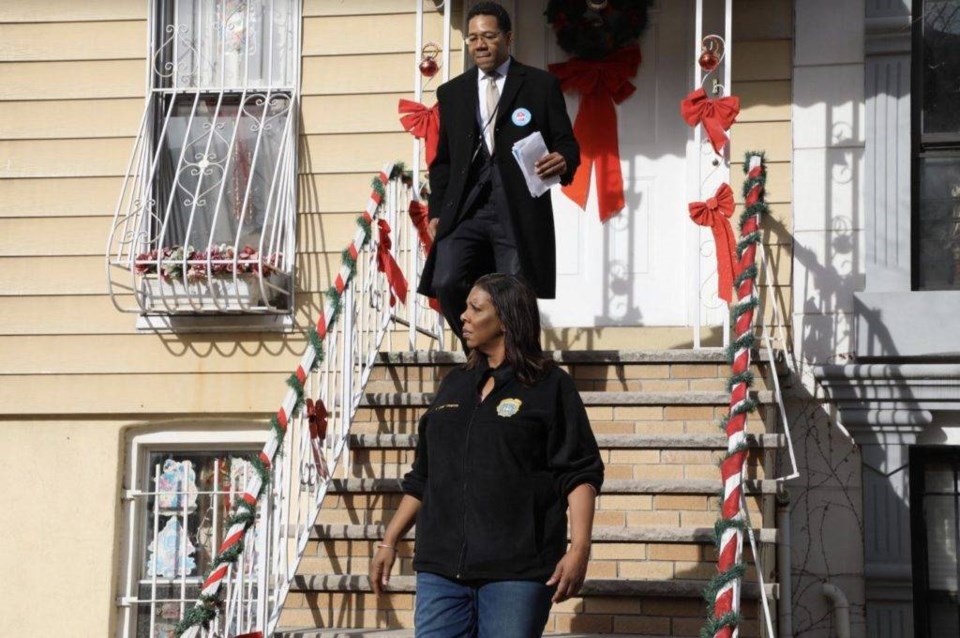In the last five years alone, New York City has received more than 3,000 resident complaints of deed theft, with 45 percent of those complaints coming from Brooklyn and almost all of them concentrated in communities of color, according to New York State Attorney General Letitia James.
On Saturday, James launched the "Protect Our Homes" initiative, part of an interagency taskforce and legislative and outreach effort focused on educating New York City homeowners around how to guard themselves against illegal deed theft scams.
James announced the launch of the initiative at a press conference at Bedford Stuyvesant Restoration Corporation on Saturday where she, along with the Homeowners Protection Program (HOPP), AARP NY, CAMBA and a throng of Brooklyn elected officials, laid out their plans for coordinating efforts to end the illegal practice.

"Deed theft scams have long plagued our communities," said James at the press conference.
Deed theft especially affects people of color, the elderly, and other vulnerable homeowners who are being scammed into signing over the deeds to their homes to con artists, usually behind a pending foreclosure, debt or lien.
"...Homeowners are tricked into signing documents that they do not understand, without attorneys. And if they do have attorneys, they are attorneys that are being provided by the scammers. Scammers then seek to evict the homeowner and sell the house to a third party at a significant profit, which is why we have lost so much wealth in this neighborhood."
Last August, Gov. Andrew Cuomo signed the Deed Theft Bill.
Co-authored by State Senator Velmanette Montgomery and Assemblywoman Helene Weinstein, the bill is a five-pronged approach to addressing deed scams and provides wiggle room for homeowners to change their minds on unfair transactions. The legislation also creates an obligation for the city to restore stolen deeds when before, homeowners mostly were responsible for carrying the burden.
"Deed fraud is like a virus, and it's spreading through Brooklyn" said Brooklyn District Attorney Eric Gonzalez at the press conference. "My office has investigated hundreds of these cases, and in the past two years since I've been in office, we've prosecuted 30 cases where people have gone to jail for deed fraud. But there are so many things-- simple things-- we can do to protect our homes. We have to make sure people are protected in their homes and [are aware of] all of the resources and legal services are available to them."
"Deed fraud is like a virus, and it's spreading through Brooklyn" said Brooklyn District Attorney Eric Gonzalez
Representative Yvette Clarke announced at the conference that she has authored The Secure Deed Act, legislation that creates a federal private right of action for victims of deed theft; a reform bill that bans the use of misleading documents. Additionally, she said, the bill allocates $50M to the Legal Services Corporation for a grant program dedicated to mitigating the impact of deed theft.
"This is a phenomenon taking place in black communities across this nation," said Clarke. "This is totally, totally unacceptable. I will do everything in my power to give people the resources necessary to fight back against bad actors seeking to swindle them out of what is rightfully theirs."
City Councilmember Robert Cornegy characterized the illegal practice as "part of a three-legged stool," which includes the misuse of the lien sale list; the misuse of the Third Party Transfer; and deed fraud.

"And I just want to say, lastly ... the Limited Liability Corporations that are buying properties in our communities and hiding under the guys of the ability to do that, we're coming for you next."
As part of the announcement, the group, along with 200 volunteers canvassed Bedford-Stuyvesant, Prospect/Lefferts Gardens and Flatbush in a door-knocking campaign where they met with residents and left materials regarding how to recognize deed theft and what residents should do if they feel they are being targeted.
Those who believe they have experienced deed theft are encouraged to call the help line at 1-800-771-7755, email [email protected], or fill out the online complaint form. Constituent services staff are trained to intake complaints, do initial research, and make referrals as needed.



